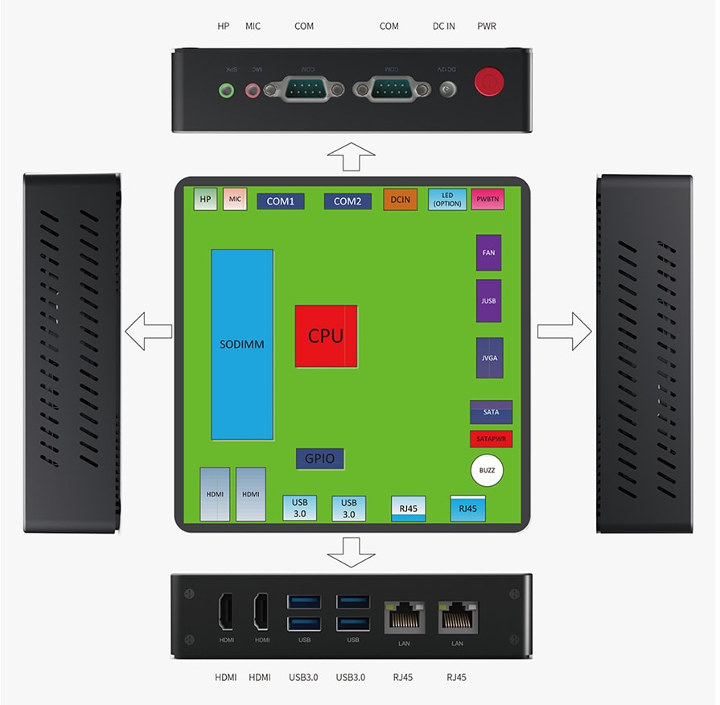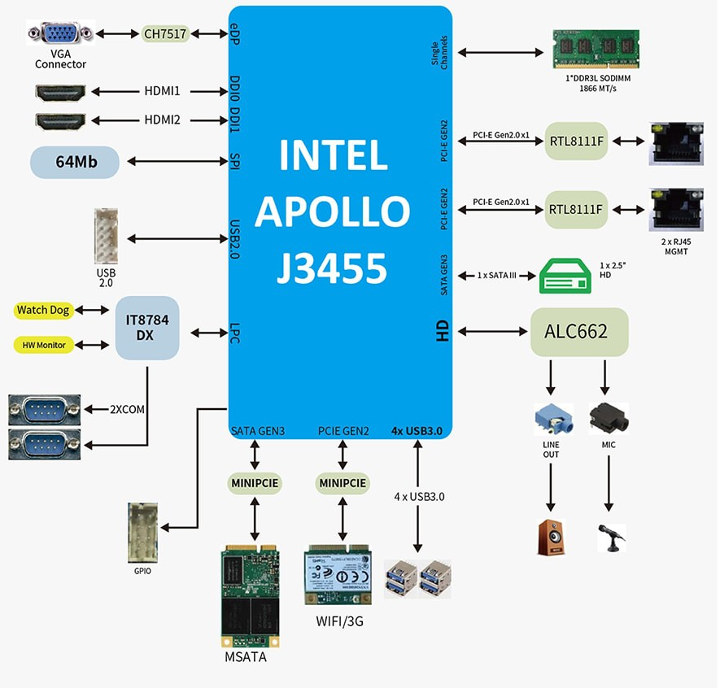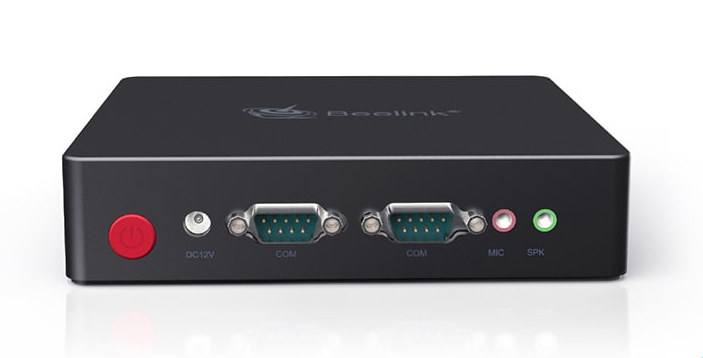Beelink launched several Apollo Lake mini PCs in the last few years, and despite moving to Intel Gemini Lake family for some of their more recent models such as Beelink S2 or Beelink X45, the company has just launched a new Apollo Lake model.
The new Beelink KT03 “client computer” is powered by an Intel Celeron J3455 processor, but differs from other mini PCs from the company, as it is sold barebone without RAM nor storage (nor OS), comes with two DB9 RS-232 connectors, and dual Gigabit Ethernet ports.
- SoC – Intel Celeron J3455 quad core Apollo Lake processor @ 1.5 GHz / 2.3 GHz (Turbo) with 12 EU Intel HD graphics 500 @ 250/750 MHz; 6W TDP
- System Memory – 1x SODIMM DDR3L socket, no EEC, 1333/1600/1867 MHz; supports up to 8GB RAM
- Storage – 64Mbit SPI flash for UEFI/BIOS; support for internal 2.5″ SATA drives, mSATA SSD slot
- Video Output – 2x HDMI port, internal VGA header; 3 independent displays
- Audio – HDMI, 3.5mm speaker jack, 3.5mm microphone jack; ALC622 HD audio codec
- Connectivity
- Dual Gigabit Ethernet via RTL81111F
- mPCIe socket for optional WiFi or 3G/4G LTE card
- SIM socket
- USB – 4x USB 3.0 host ports, 2x USB 2.0 host ports
- Serial – 2x RS-232 ports (DB9)
- Misc – Power button, 4-pin GPIO header
- Power Supply – 12V/3A
- Dimensions – 144 x 130 x 35 mm
- Temperature Range – Operation: -15°C to 50°C; storage: -40°C to +70°C
 You’d have to add your own DDR3L memory stick, mSATA or/and SATA drive, and install the operating system yourself. I can’t find any links to (Windows) drivers right now however. The specifications list make it quite clear it’s more for industrial use, or other custom solutions with VGA and USB headers, the COM ports, and GPIO headers that are not so common on x86 mini PCs.
You’d have to add your own DDR3L memory stick, mSATA or/and SATA drive, and install the operating system yourself. I can’t find any links to (Windows) drivers right now however. The specifications list make it quite clear it’s more for industrial use, or other custom solutions with VGA and USB headers, the COM ports, and GPIO headers that are not so common on x86 mini PCs.
That may also explain why the company has provided the detailed pinout for each connector and header including mPCIe sockets, DB9 ports, RJ45 connectors, SATA, and so on.
 Beelink KT03 can be purchased for $149.99 including worldwide shipping on GearBest. Again, you’ll have to use your own RAM, storage and operating system.
Beelink KT03 can be purchased for $149.99 including worldwide shipping on GearBest. Again, you’ll have to use your own RAM, storage and operating system.

Jean-Luc started CNX Software in 2010 as a part-time endeavor, before quitting his job as a software engineering manager, and starting to write daily news, and reviews full time later in 2011.
Support CNX Software! Donate via cryptocurrencies, become a Patron on Patreon, or purchase goods on Amazon or Aliexpress





